Best Director
Terrence Malick, Tree of Life
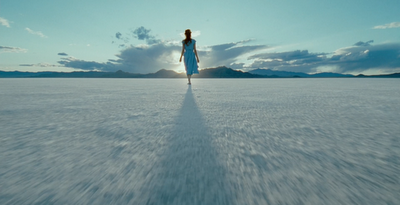
Reaching the apotheosis of his fragmentary, personal and universal side, Malick moves beyond Emerson into the realm of Joyce, finding a mix between the microcosmic and universal that shouldn't work (and doesn't, for many) but makes for the most deeply felt experience I can recall at the movies. Malick folds time and space onto his humble Texan family, at once emphasizing their unremarkable perpetuation of eternal cycles and their own variations and decorations that make them singular among the other links of this chain.
Runners-up
Raul Ruiz, Mysteries of Lisbon
Apicatpong Weerasethakul, Uncle Boonmee Who Can Recall His Past Lives
Kelly Reichardt, Meek's Cutoff
Pedro Almodóvar, The Skin I Live In
Best Actor
Peyman Moaadi, A Separation
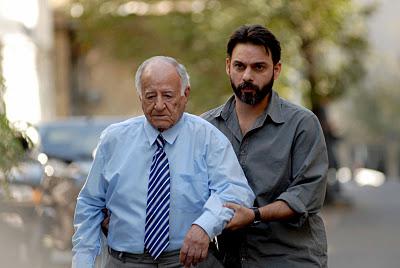
Simultaneously selfish and selfless, defiant but quietly despairing, Peyman Moaadi is frustrating and heartbreaking as the estranged husband trying to care for his daughter and Alzheimer's-ridden father. But his self-righteousness slowly fizzles as he inadvertently brings more stress and potential ruin upon his splintered family. Moaadi never loses the character even as Nader moves the story into darker, more complex moral realms, and when he sins, he does so with wrenching believability. Much of the film relies on him, and Moaadi pulls it off flawlessly.
Runners-up
Michael Shannon, Take Shelter
George Clooney, The Descendants
Gary Oldman, Tinker Tailor Soldier Spy
Hunter McCracken- The Tree of Life
Best Actress
Kirsten Dunst, Melancholia
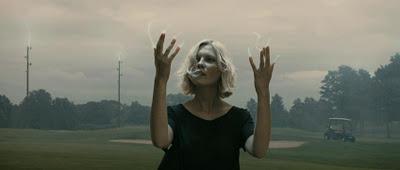
Capturing depression better than practically anyone I've ever seen on the screen, Kirsten Dunst's bravura performance in Melancholia is the endothermic opposite of the usual von Trier heroine. Where his other leads suffer, she seems to inflict suffering, not in the grisly and loony way of Gainsbourg's She in Antichrist but in a cosmic sense. The chickens come home to roost for the world that so viciously tore down previous protagonists, as Dunst's powerfully detached, numbed woe brings about the planet's destruction. Payback's a bitch, and Dunst is subtly terrifying as she presides over the apocalypse with a silent approval for the end of days.
Runners-up
Mia Wasikowska, Jane Eyre
Rooney Mara, The Girl With the Dragon Tattoo
Charlize Theron, Young Adult
Michelle Williams, Meek's Cutoff
Best Supporting Actor
Christopher Plummer, Beginners
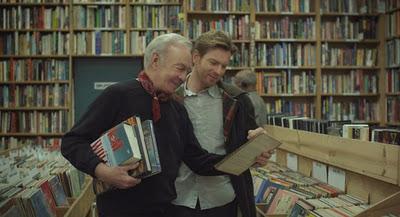
There are huge gaps in my familiarity with Christopher Plummer's filmography, but this is the brightest and most touching role I've seen him take. And what a performance it is: seen in the protagonist's flashbacks, Plummer's newly out dad is alive and energetic even as we mostly see him in hospitals. Having hid his real self behind a wall of emotional remove, Hal basically has to live his denied life in the four years between his confession and his death, and Plummer grounds the man's newfound joie de vivre in a half-spoken past of deep pain and misguided decisions. His son, who remembers only an almost professionally loving man, cannot comprehend his dad's sudden sweetness, but that doesn't stop him from being completely devastated by Hal's death. Hell, I was too.
Runners-up
Nick Nolte, Warrior
Albert Brooks, Drive
Brad Pitt, The Tree of Life
Patton Oswalt, Young Adult
Best Supporting Actress
Elena Anaya, The Skin I Live In
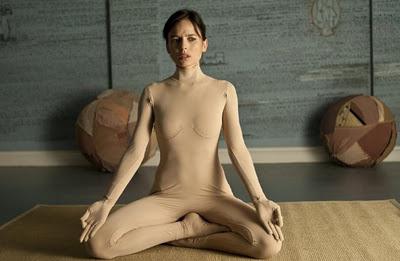
Even without the film's twist, Elena Anaya gives a powerful performance as a compliant prisoner of a madman. Once the full truth is revealed, however, Anaya becomes the crux of the film's gender politics and its ingenious statements on the way gender roles have been socially ingrained into our biology. Anaya is as mysterious and affecting after the reveal as she was before, and she helps The Skin I Live In become one of Almodóvar's best.
Runners-up
Jessica Chastain, The Tree of Life
Hayley Atwell, Captain America, The First Avenger
Shailene Woodley, The Descendants
Rose Byrne, Bridesmaids
Best Ensemble
The Descendants
Alexander Payne's film is not only stacked with great actors, they each get a moment to shine as friends, family, and even a few enemies filter through a hectic time in Matt King's life. The leads are superb, with Clooney giving his best performance to date and Shailene Woodley offering up one of the best youth performances in years, but the supporting cast rises to meet them at every turn. I can't discuss Judy Greer's performance without spoiling it entirely, but she is but one of many fantastic side-players, along with Beau Bridges' Dude-esque burnout with a buried edge and Robert Forster's father-in-law, who deals with his grief in anger. I can't help but love a film that knows the value of a good set of character actors.
Runners-up
Tinker Tailor Soldier Spy
Bridesmaids
Best Screenplay
A Separation
There's no way to summarize Asghar Farhadi's A Separation without leaving out a massive part of its essence. To call it a marital drama misses how quickly it becomes a more complicated legal narrative, which also omits certain twists and turns that deepen it. And to call it a social critique of Iran is accurate but limiting, leaving out the universal truths of humanity it explores. No one in this film is fully pitiable, but neither are they loathsome. These characters are the most absorbing and compelling of the year, all thanks to Farhadi's script.
Worst Screenplay
Green Lantern
My head says Red State, with its belligerent but directionless tweet-ready screeds, but my heart calls out for Green Lantern, which proves that comic-book writing is clearly much harder than some snobs think. Four (four!) writers worked on this abhorrent mess and demonstrated an incompetence with the material that borders on willful disrespect. Unable to conceive of the dramatic possibilities of a man so fearless he is stubborn, they rewrite him as a smarmy coward who fall into heroism solely through plot holes. How can Hal Jordan quit the Lantern Corps before he's even finished training but keep the ring? Why does an eons-old rule about the ring seeking out the fearless suddenly change to the ring simply believing in someone to become fearless after a while, like some supportive chum? And why does the script have Hal beg the Guardians to let him defend his planet when no one has even remotely objected to this? Not a damn thing in this horrid screenplay makes sense, even with its own internal logic.
Best Editing
Film Socialisme
It actually wasn't easy to vote for Godard given the competition. Terrence Malick's battery of editors made outright tone poetry of the director's usual over-coverage, while Carlos Madaleno and Valeria Sarmiento made Raul Rúiz's 266-minute epic as fleet as a blockbuster. But no other film was as intellectually provocative and dense as Film Socialisme, and the editing serves as the foundation for its various dialectics and visual puns. Godard does not simply treat editing as a means of progressing or even just juxtaposing, and he generated a puzzle to be mulled over for years with his work here.
Runners-up
The Tree of Life
Mysteries of Lisbon
Worst Editing
Red State
Not only is the linking of the shots a prime example of the worst kind of "realism" action, the overall pace is so erratic that the film never establishes itself before its sudden upending. The film has no remote sense of pace, slamming on the brakes instantly for a monolog that was, amazingly, even longer in earlier cuts and should have been trimmed more. Smith's film suffers enough from its muddled messaging, but the editing only makes everything worse.
Best Score
Trent Reznor and Atticus Ross: The Girl With the Dragon Tattoo
Not as instantly classic as Reznor and Ross' Social Network soundtrack, this bleak soundscape is nevertheless head and shoulders above a generally weak year for scores (I was surprised that none of Alexandre Desplat's scores won me over as they usually do). Where both Williams' and Bource's compositions were giddy, ebullient throwbacks, this all-too-modern digital howl was as cold and static as ice. This has the effect of generating not even dread but a simple numbness that affects the extremities like a bitter winter day. Impressively, the pair totally avoid rehashing their previous work, and indeed this score is less thriller-like, despite the film's subject matter, than The Social Network's. God only knows how long they can keep this up, but for the moment, no one can touch Reznor and Ross.
Runners-up
John Williams, The Adventures of Tintin
Ludovic Bource, The Artist
Cliff Martinez, Drive
Most undervalued player
Oscar Isaac, Sucker Punch and Drive
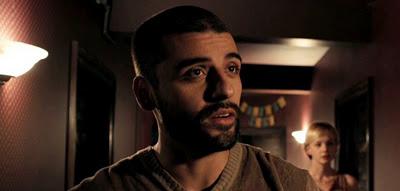
As the villain in Zack Snyder's unbearable sub-feminist romp, Isaac actually did a great job of capturing oily misogyny and power-hungry masculinity as Blue, creating a more concrete and tactile sense of danger and menace than Snyder's huge but weightless CGI sequences. In Drive, he was even better. The second his character comes on-screen, freshly released from prison, a dread rises in the throat that he will be the bog-standard bad father and obstacle in the budding romance between Driver and Irene. But Isaac sidesteps that pitfall by making Standard into a decent, loving man who got mixed up in the wrong crowd and is now desperate to protect his family. In what may be that film's most touching scene, he describes meeting Irene and falling in love, speaking with wistfulness, a twinge of humor, and a lot of regret that creates a character's whole life in just a few minutes.
Best Heroes
1. Ameena Matthews, The Interrupters
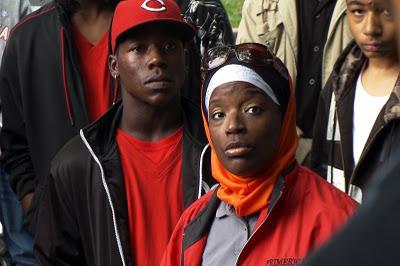
In a film about real-life heroism, none emerge more iconic than Ameena Matthews. The daughter of a notorious gang leader and an ex-con like all the rest of the interrupters, Matthews is not some ivory tower do-gooder merely looking to help out. She has been the people she castigates and lectures, and she can speak to them with a familiarity that is unforced because it is genuine. As witty and maternal as she is forceful and passionate, Matthews is one of the most compelling figures to appear before Steve James' camera, and the director does not want for dramatically captivating subjects.
2. Moses, Attack the Block
Introduced as a common ghetto thug robbing equally poor people, Moses seems an unlikely choice to be one of the most inspiring action heroes of the year. But when aliens threaten to tear apart his already run-down hood, the young man fights back hard for his community, clearing getting out aggression on all the other things that kept him and others down for so long. John Boyega's hard face is still lined with just enough baby fat to make him convincingly naïve, but then, no one expected the first Moses to deliver anyone from harm, either.
3. Peggy Carter, Captain America: The First Avenger
With Natalie Portman's astrophysicist in Thor turning into a drooling, jelly-legged schoolgirl at the sight of Chris Hemsworth's abs, I had no hope for any engaging blockbuster heroine this year. Then along came Peggy Carter to right so many of Marvel Studios' wrongs. Attracted to Steve Rogers' sweetness as much as his super-soldier bod, Carter can nevertheless get along perfectly well without him. Strong, hard-willed, and human, she is not only one of the most complex female characters to appear in a superhero film but one of the most complex characters, period. There was much to love about Captain America, really the only summer blockbuster that worked, but nothing in it was half so good as Peggy.
4. George Smiley, Tinker Tailor Soldier Spy
George Smiley handles his enemies with elegantly inelegant practicality, gauging their weaknesses and finding the path of greatest ease and efficiency to taking care of the problem. Oldman is so still he could double for the coat rack, nor does he raise his voice in the explosive outbursts we've come to expect from the actor. Looking like an accountant more than a tuxedo-wearing, lady-bedding Bond figure, Smiley is carefully modeled to be unremarkable, but it seems as if even those close to him have been sucked in by the persona, and the loneliness he feels as a cuckolded and forcibly retired old horse gives his investigation of British intelligence an air of wounded betrayal. But even with his preoccupations, he still proves deftly able to corral a group to hunt down the traitor among them, and if there is no joy in Alfredson's film, there is a sad sort of satisfaction in seeing Smiley prevail.
5. Marcel Marx, Le Havre
It takes a talent of Aki Kaurismäki's level to make something original and genuinely poignant out of a selfish white man who learns responsibility through helping a disenfranchised black child. But damned if Marcel Marx isn't one of the freshest characters in some time, so removed from the insistent messaging of these sorts of movies by Kaurismäki's deadpan that the viewer has a rare chance to simply see a human being help another one. Oh, the political commentary is overt, but the handling of it is graceful and naturalistic, more so even than the similarly complex reading of like material with Thomas McCarthy's The Visitor. André Wilms enduring puckishness ensures that Marcel remains funny and peevish, but his ability to ingratiate himself upon others only makes his consideration
Best Villains
1. Loki, Thor
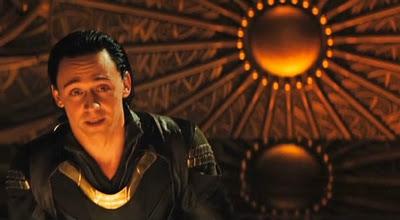
Cunning, deadly, and the only truly Shakespearean element of Kenneth Branagh's Thor, Loki single-handedly elevated that film from an elaborate commercial for Bod Body Spray into something occasionally compelling. Tom Hiddleston makes an instant, breakout impression as the god of tricks, his heartbreaking feelings of neglect and not belonging keenly felt on Hiddleston's boyish but wracked face. Less brutish than the other Marvel villains thus far assembled in their run-ups, Loki works instead through intellect and sedition. It's no wonder Joss Whedon would want him to square against the Avengers instead of some giant, lunkheaded killing machine.
2. Robert Ledgard, The Skin I Live In
In his own way, Ledgard messes with an audience's sympathy regarding rape and loss more than Lisbeth Salander. Almodóvar's melodramatic horror constantly redraws the lines with revealing flashbacks, shifting attitudes for the character from revulsion to empathy. Eventually, however, the full scope of his insanity is revealed, turning an unbalanced man into a mad scientist who brings about one of the most transgressive films about gender politics ever made.
3. Bernie Rose, Drive
With the exception of the protagonist, every character in Drive carries huge gulfs of baggage and half-spoken backstory that makes them frighteningly tactile. Well, none is more tangible (or frightening) than Bernie Rose, played by Albert Brooks in a performance that is at once easy playing against type and something far more sinister. Brooks, as I said in a chat under my original review, plays a shlock movie producer-cum-gangster like a Jewish mother, always vaguely exasperated by "having" to kill someone and complaining about the mess. Smart enough to avoid trouble, he's also the last person with whom you want to get in too deep.
4. Lord Shen, Kung Fu Panda 2
Voiced with insane hubris and frenzy by Gary Oldman, Lord Shen is also so fluidly animated as to be scary in his grace. Hollowed out by soulless ambition, Shen is almost as tragic as Po, even as the same events that make the heroic panda's life sad were initiated by the evil peacock. Occasionally reflective, mostly power-hungry and occasionally even a bit funny, Shen was a huge step up from the previous Kung Fu Panda's villain, so good the writers could hang a much deeper, yet more action-packed, story on his cannon-obsessed feathers.
5. Chad, Tucker & Dale vs. Evil
A riotous inversion of the usual hillbilly horror movies, Tucker & Dale vs. Evil cast not a pair of cabin-dwelling good ol' boys as terrorizers of pretty young things but the kind souls who find themselves misunderstood by prejudiced and judgmental kids. Leading them is Chad, a twisted sadist with an axe to grind against rednecks who will sacrifice all of his friends to kill these two hapless fellas. It's a superb twist, and one that only gets crazier as more of Chad's background is revealed.
Best Catchphrase
"Rhinoceros!" Salvador Dalí, Midnight in Paris
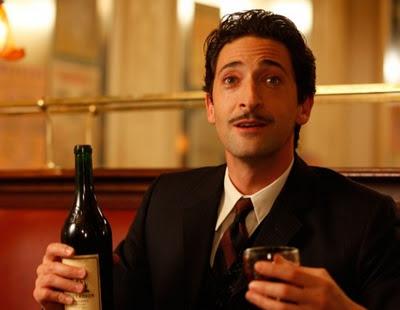
Best Use of 3D That Finally Made the Technology Palatable Just When It Was Thankfully Dying
Hugo
Most Welcome Surprise
Warrior
Besides Attack the Block, of which I heard only vague hype before getting passes to a free screening, the film that blew me away with the least amount of pre-viewing interest was Warrior. Sports movies aren't my bag, a sports movie about the new fad of mixed martial arts fighting even less. But Warrior will soon go down as one of the best the genre has to offer, a Greek tragedy on steroids that complicates the audience's sympathies and stages its fight scenes with brutal precision that feels triumphant and abhorrent in equal measure. Buoyed by three excellent performances, Warrior is also the most unexpected actor's showcase of the year.
Biggest Disappointment
Shame
A great many of the year's big awards-baiting films failed to win me over, but none tackled more complex themes than Steve McQueen's Shame. The film addressed psychic wounds, confused desires, and the social stigma of a natural function that turns something beautiful and pleasurable into a sinful act (even when viewed secularly). But the disservice the film does to this material makes it more disappointing than the more ho-hum letdowns of, say, The Artist or Martha Marcy May Marlene. But not even Fassbender's mesmerizing, frightening performance by a man consumed by his demons can add much texture to McQueen's overly fussy direction, which recalls not so much the modern alienation of his hero Antonioni so much as the fatuous, emptily erotic fashion shoots of that director's protagonist in Blow-Up.
Best Scene
The Girl With the Dragon Tattoo: opening credits
David Fincher's opening credits are so varied and well-crafted that Matthew Zoller Seitz did a fantastic series of video essays on them last year. I hope he sets aside the time to do one for The Girl With the Dragon Tattoo when it comes to home video, as it may be Fincher's best. Like the sequences for Se7en (which generated a sickly, unstable atmosphere of recorded murders) and The Social Network (which indirectly toured the landmarks of America's creation myth in Boston), the hyperedited animation of The Girl With the Dragon Tattoo's opening sets the tone, plot, and themes for the rest of the film. USB cables entwine characters into an embrace that asphyxiates them with the forced proximity, while penetrative and groping actions speak to the misogynistic elements to arise. Some might fairly criticize Fincher's film for being overlong, but he proves here that he has the story down in under three minutes.
Runners-up
Tinker Tailor Soldier Spy: dealing with the mole
Drive: elevator beating
Adventures of Tintin: Bagghar chase
Take Shelter: shelter climax
Worst Scene
That agonizing, comically self-absorbed close-up during the world's slowest, mostly unintentionally hilarious rendition of "New York, New York" in Shame.
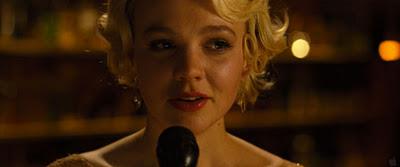
Best Part of a Bad Film
The bromance in Paul
It's weird to celebrate the defining aspect of a film without liking the movie as a whole. But if Paul never congealed into a working, fully engaging picture, the hetero-life mate chemistry between Simon Pegg and Nick Frost is so strong that I couldn't be mad at the film for fizzling. And even though Seth Rogen occasionally made me laugh as the titular alien, I often found myself wishing I could just keep watching these geeky oafs bumbling around America without the awkward extraterrestrial comic-thriller tacked on.
Worst Part of a Good Film
The opening narration of The Descendants
The Peaks and Troughs Award for Same-Year Quality Gaps
Gary Oldman, Red Riding Hood and Tinker Tailor Soldier Spy
Breakout Stars
Jessica Chastain: The Tree of Life, Take Shelter, The Help, every third film released in 2011
Michael Fassbender: Shame, A Dangerous Method, Jane Eyre, X-Men: First Class
Tom Hiddleston: Thor, Midnight in Paris, War Horse
Most Inspiring Critical Impact
#teammargaret
Kenneth Lonergan's long-delayed and -litigated follow-up to 2000's You Can Count on Me came out for barely a few weeks in Atlanta, at which time I was stuck in Auburn and unable to see it. My regret was only compounded by its near-total disappearance from discussion until a small band of film writers started trumpeting its merits and pushing for the film to have a more reasonable distribution to other critics. Though Fox Searchlight seems almost opposed to supporting its own film in any way (those lawsuits must be acrimonious indeed), the efforts of these impassioned people on Twitter got the film screenings it otherwise never would have seen. Almost certainly the most visible example of the lingering power of film criticism to effect some kind of influence, it is also a great demonstration of the supposedly cynical and bilious profession's capacity for celebration and championing of unsung art.
Best Poster
The Ides of March
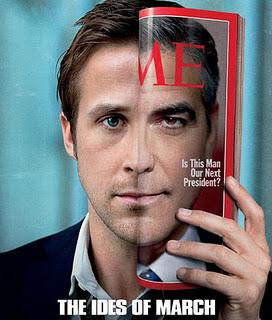
Runners-up
Uncle Boonmee Who Can Recall His Past Lives
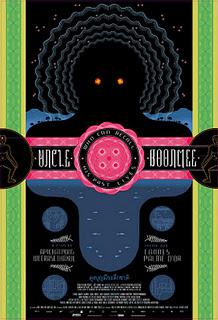
13 Assassins
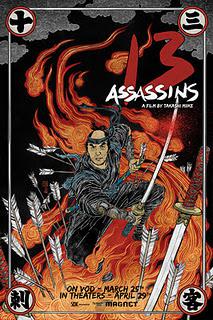
Tyrannosaur
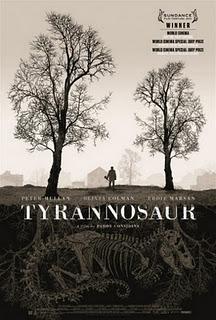
Midnight in Paris
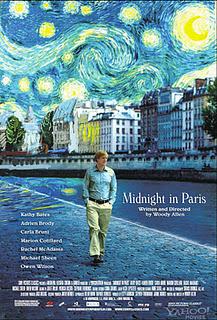
Best Film That Would Have Been on My Best-Of List Had I Not Seen It Last Year
Certified Copy
Abbas Kiarostami's cryptic, witty comedy-drama was far and away my favorite film of 2010, and seeing it on a big screen this year only deepened its many layers. Even in this much better year for film, it would have appeared at number 2, had I waited to count it among U.S. release dates. One of the best works by perhaps the world's greatest living filmmaker, Certified Copy is as dense as his self-reflexive '90s work even as it is one of the director's most accessible films, and I hope that rumor of Criterion's unwillingness to release it on home video is just that.
Best previously released film I saw for the first time in 2011
Love Exposure
Sion Sono's sui generis collision of extremities and pop culture is at turns gonzo, repellent, high comic and remarkably affecting. The fleetest film to stretch well beyond the three-hour mark since Seven Samurai, Love Exposure uses its wild setpieces, beyond-Buñuel religious satire, gore and fixation on erections to capture something approaching the teenage experience of modern, desensitized youth and the deep yearning beneath the façade. It's offensive and bewildering, but also brilliant and beautiful. One of the great works of the previous decade.
Most Anticipated Films of 2012
This is Not a Film; Kill List; The Raid; Django Unchained; The Turin Horse; Moonrise Kingdom; The Avengers; The Master; The End; The Deep Blue Sea

